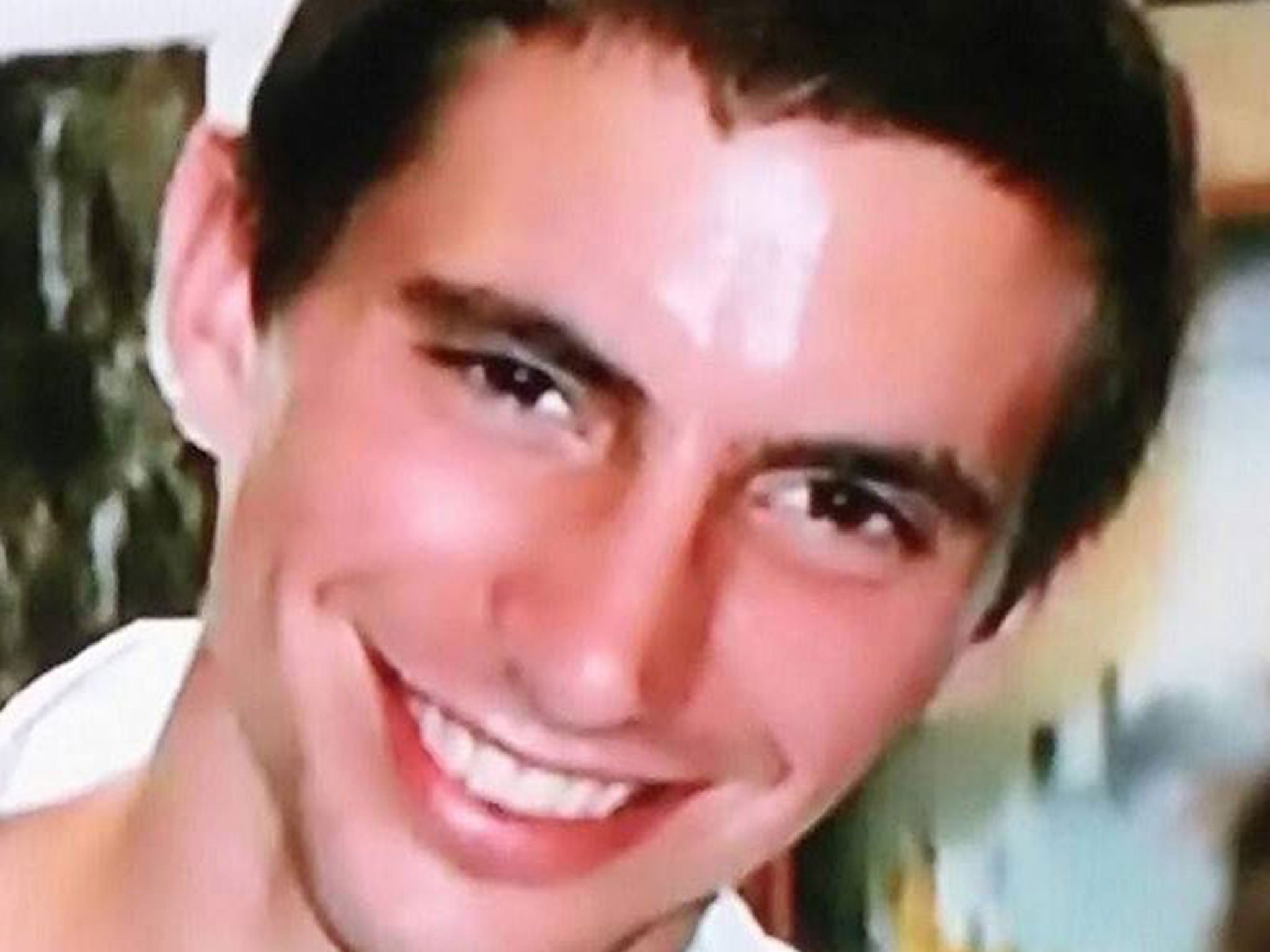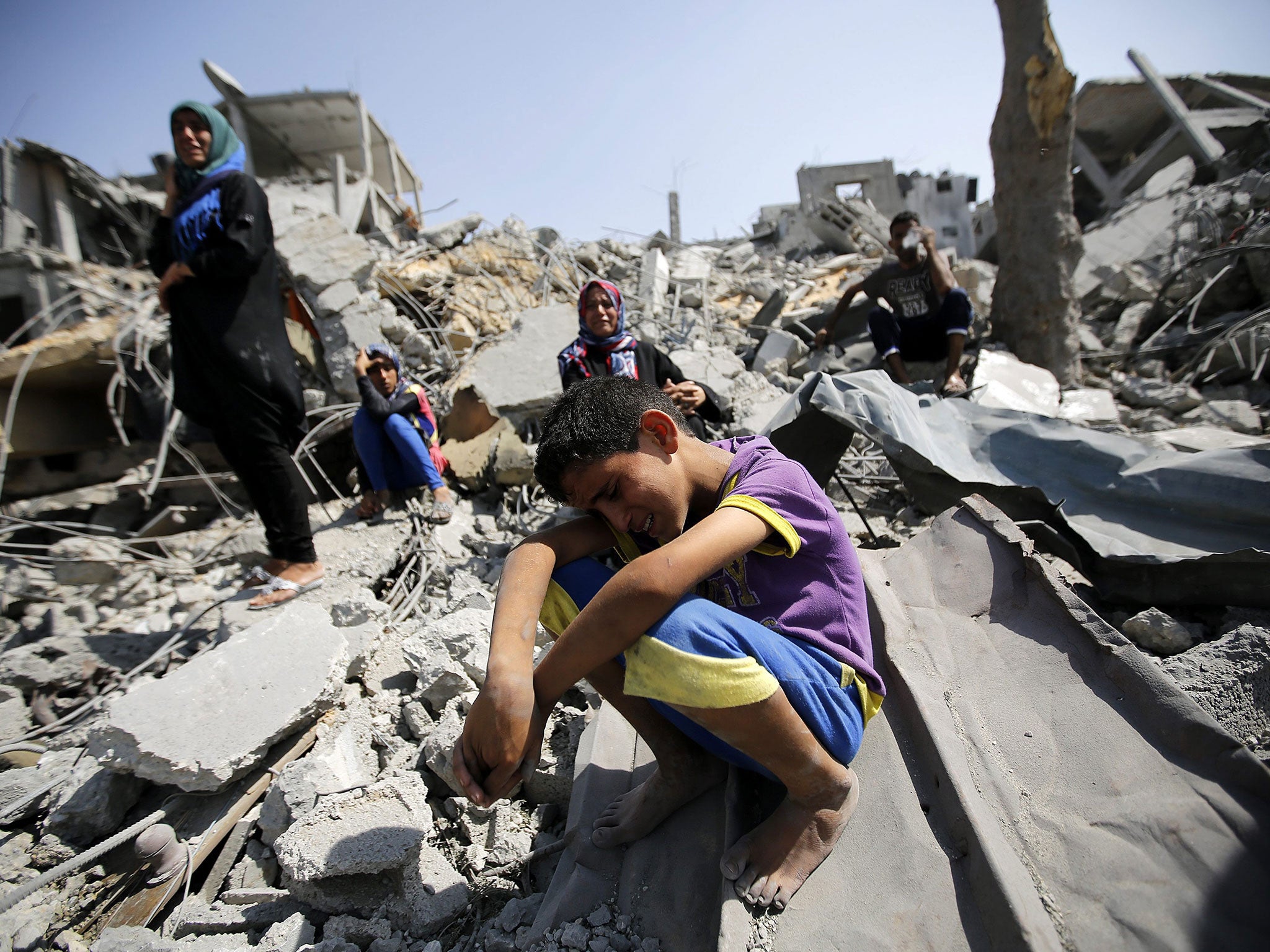Gaza conflict: Israel’s great fear is realised as soldier is seized in ambush that killed two more
Abducted Lieutenant reported to be cousin of Defence Minister and scion of family who emigrated from Britain

Your support helps us to tell the story
From reproductive rights to climate change to Big Tech, The Independent is on the ground when the story is developing. Whether it's investigating the financials of Elon Musk's pro-Trump PAC or producing our latest documentary, 'The A Word', which shines a light on the American women fighting for reproductive rights, we know how important it is to parse out the facts from the messaging.
At such a critical moment in US history, we need reporters on the ground. Your donation allows us to keep sending journalists to speak to both sides of the story.
The Independent is trusted by Americans across the entire political spectrum. And unlike many other quality news outlets, we choose not to lock Americans out of our reporting and analysis with paywalls. We believe quality journalism should be available to everyone, paid for by those who can afford it.
Your support makes all the difference.A 72-hour humanitarian ceasefire, supposed to pave the way to a peace deal, collapsed into savage violence within three fateful hours after the Israeli military accused Hamas of breaking the truce with the capture of a soldier and killing of two others in an ambush using a suicide bomber.
The attack took place while Israeli forces were trying to destroy one of the network of tunnels Hamas uses to carry out rocket attacks and infiltrate across the border. The captured soldier, it was reported, was Lieutenant Hadar Goldin, from a family of British Jewish immigrants and a cousin of the Israeli defence minister, Moshe Yaalon.
Hamas at first appeared to acknowledge that they had captured the soldier, but later denied that was the case. The abduction of its citizens has always provoked retaliation from the Jewish state: the capture of Corporal Gilad Shalit eight years ago led to Israel’s first offensive back into Gaza after it had withdrawn from the territory.
US President Barack Obama called on Friday night for the soldier to be released and said the abduction would make it much harder to re-establish a ceasefire. “If they are serious about trying to resolve this situation, that soldier needs to be unconditionally released as soon as possible,” he said. “A ceasefire was one way in which we could stop the killing. Trying to put that back together is going to be challenging.”
The residents of Rafah would not have known about the alleged abduction or the suicide bombing; but they experienced the fury of the Israeli military’s response. Artillery and tank rounds came crashing into the town, some of them hitting homes, shops and public buildings. This included part of the Yussef Al-Najjar Hospital, where the wounded were being ferried in by private cars, taxis, carried by hand.
By late afternoon, around 50 people are reported to have died, with the wounded, numbering over 200 being transferred, under fire, to other medical facilities in the area. But, as wounded were being taken out of the building, others were brought in.
Shahed Abu-Namla was picked up off the street and taken to an ambulance. She had been running down the street with her family when the shells started landing near them. The last thing she remembers before feeling excruciating pain and passing out was seeing her mother reach out and then fall. The-ten year-old girl was lying in the afternoon on a bed in the European Hospital at the edge of Rafah covered in serious burns, desperately asking about her mother.
Some of the casualties had only returned to their homes in the town after the announcement of the truce. Wael al-Zambi arrived back at 9.30 in the morning to his house in the district of Mashrua Amar with his extended family of 18. They had taken refuge at a UN school in Shabura two weeks ago. But there was not even time to unpack, ten minutes later they were back on the road, trying to get away.
Mr Zambi 37, with shrapnel damage to his arms and body, recalled at the hospital : “We thought since this one was not just a few hours, but three days, it would be safe to go home. People at the [UN] school were saying that this may be the end of the fighting. So we set off; there were more than 3,000 people at the camp, 90 per cent of them left in the morning.
“I don’t know why the bombing started. I got hit, I thought my body was being cut open. I only found out later about the deaths. My wife and children are back the UN place. These places are not safe, I know; they are getting bombed, but it’s better than being in Rafah.”
Two members of the family, Harbi, 55, and Sami, 40, died instantly. Three others: Salama, 48, Sofia, 43, and 47 year old Mohammed were killed later as they tried to get out by another road. A relation, Abdel Sheikh Eid, had come to the hospital on hearing about the injured being transferred there. He had just taken a call on his mobile from a cousin. “She wants to know about her husband. He is not going to live, but I can’t tell her that on the phone”, he said.

There were patients at the hospital from other parts of Gaza on transit for specialist treatment abroad. But, with the Rafah Crossing into Egypt shut due to the fighting, they were stuck there, with sounds of bombardment nearing.
Among them were two boys hit by a missile strike at the Beach Camp in Gaza City in which ten other young boys and the grandfather of one of them had died. Hamas and the Israeli military had blamed each other for the lethal assault.
Zahar al-Aila, was trying to get his ten year old nephew Mohammed back to Shifa Hospital in Gaza City where he had been initially treated. But he had been told “there is no bed left for him at Shifa, it’s full. I just want to take him back to Gaza City, but they say haven’t got any ambulances to spare. They warned me against driving him back, because the road was dangerous.”
Mohammed al-Aila, covered in bandages, whispered: “Please, I need help to get back to Shifa, I don’t like it here. You can hear lots of bombs, it’s very frightening.”

Nine year old Rami Abdel al-Helo was another survivor at the hospital from Beach Camp. A five year old brother, Osama and their grandfather, Sobhay al-Helo, had died in the attack . His father, Ahmed, said: “I can’t see Rafah opening soon with all this firing going on. I have lost a son already and I must protect this one. With the ceasefire, we thought this would be a good day to get out, but now I fear it’s just going to get much worse.”
Medical staff were gathered around Shahed abu-Namla’s bed. “She keeps asking for water and she want to know about her family” said a nurse, Halina Um Abdullah. “But no one knows what happened, there were a lot of fatalities where this girl was found, so one has to fear for the rest of the family. The ambulances cannot go back in and search until there is another ceasefire, whenever that will be. We can just pray it happens.”
Join our commenting forum
Join thought-provoking conversations, follow other Independent readers and see their replies
Comments